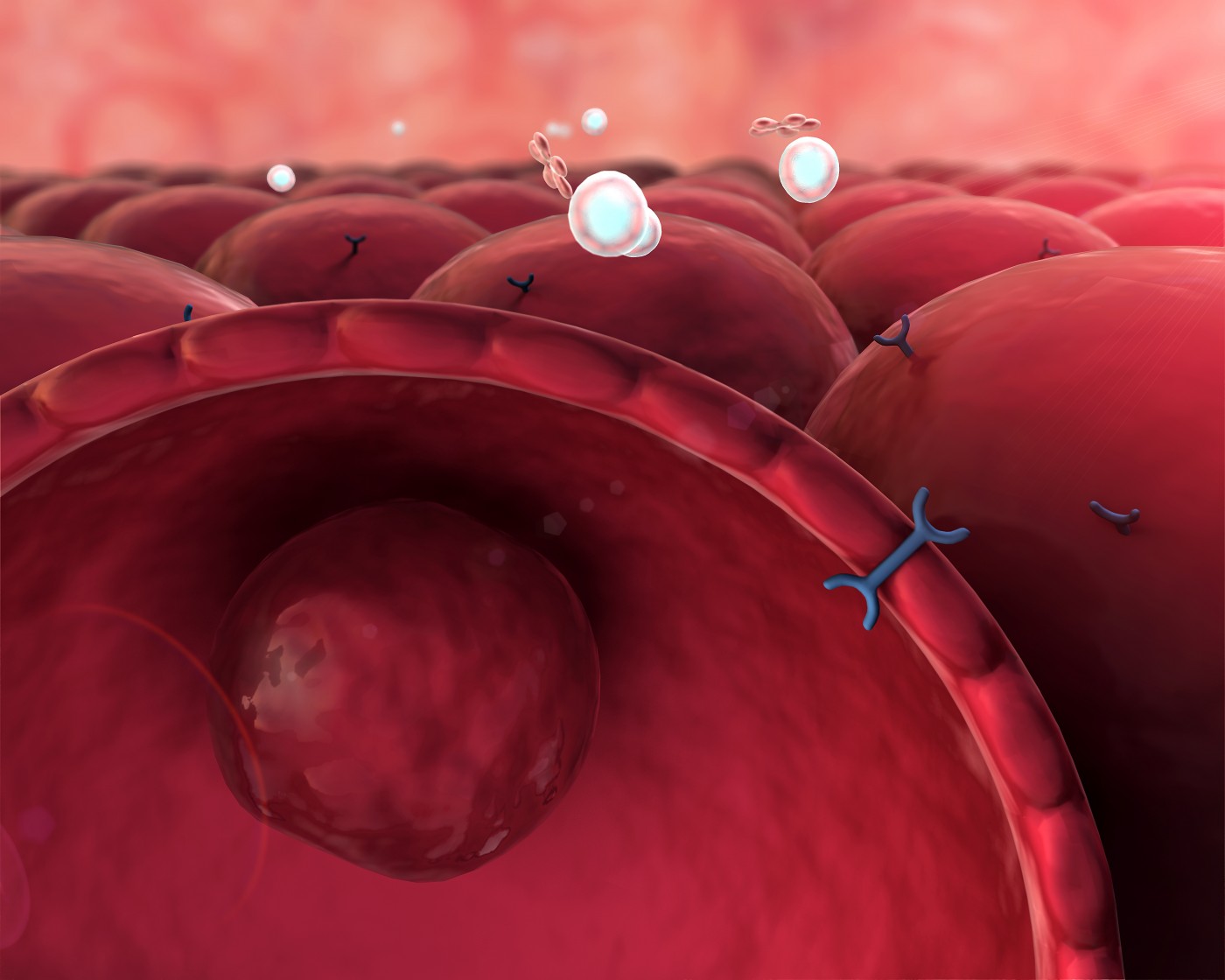A study led by Valerie LeBleu of The University of Texas MD Anderson Cancer Center demonstrated the therapeutic potential of targeting both pericytes in blood vessels and a vascular growth factor, called Angiopoietin-2 (ANG2). The study entitled “Targeting Vascular Pericytes in Hypoxic Tumors Increases Lung Metastasis via Angiopoietin-2” was published in Cell Reports on February 24, 2015.
Tumor progression is associated with new blood vessel formation grown from pre-existing ones, a process  known as angiogenesis. This provides cancer cells with oxygen, nutrients and a route to spread to other tissues in the body.
known as angiogenesis. This provides cancer cells with oxygen, nutrients and a route to spread to other tissues in the body.
Pericytes are cells that wrap around blood vessels, stabilizing vasculature. Its depletion has been regarded as a strategy to prevent blood supply to the tumor. In this study, the research team found that in advanced stages of breast cancer, although depletion of pericytes decreases tumor growth, it increases lung metastasis through leaky vasculature. This effect is accompanied by enhanced production of ANG2 that further destabilizes normal vasculature. When pericyte depletion was combined with ANG2 antibody inhibition, both tumor growth and metastatic disease was reduced. Anti-ANG2 treatment rescued the vascular defects associated with pericyte targeting by enhancing endothelial cell-cell tight junctions in blood vessels.
[adrotate group=”3″]
“Our study showed that angipoietin signaling is a key metastasis promoting pathway associated with abnormal tumor blood vessels with poor pericytes coverage,” said Dr. LeBleu. “When combined with pericyte loss during the late phases of tumor progression, it is possible to reduce both primary tumor growth and metastatic disease.”
The beneficial effects of the combination therapy were observed in mice implanted with mammary tumor epithelial cells, but researchers also found that ANG2 production correlated with poor outcome in breast cancer patients. These findings further emphasize the potential utility of therapeutic regimens that target pericytes and ANG2 signaling in metastatic breast cancer.
“Targeting of ANG2 signaling in tumors with abnormal blood vessels with low pericyte coverage appeared to restore vascular stability and decreased tumor growth and metastasis in lung cancer mouse models,” added Dr. LeBleu. “We also found that ANG2 was tied to poor outcome in patients with breast cancer. These results emphasize the potential for therapies targeting in advanced tumors with poor quality blood vessels.”

